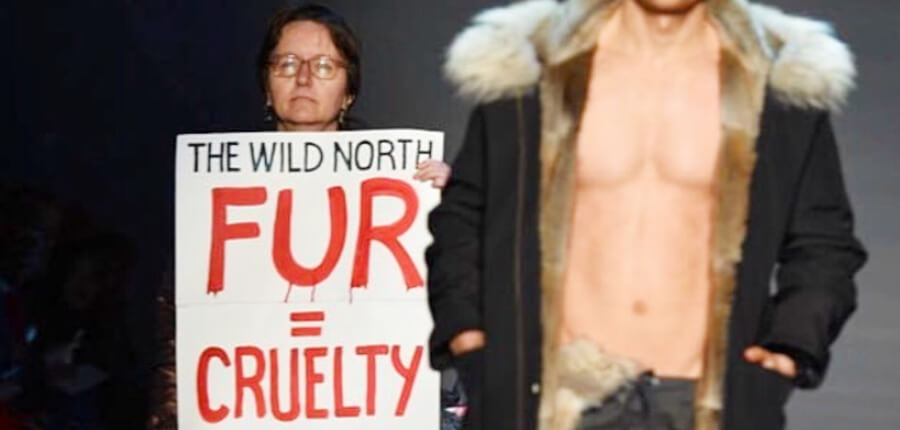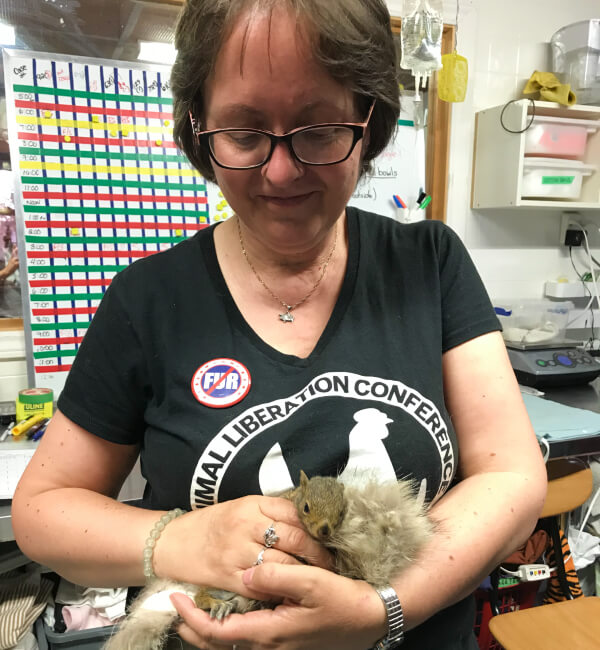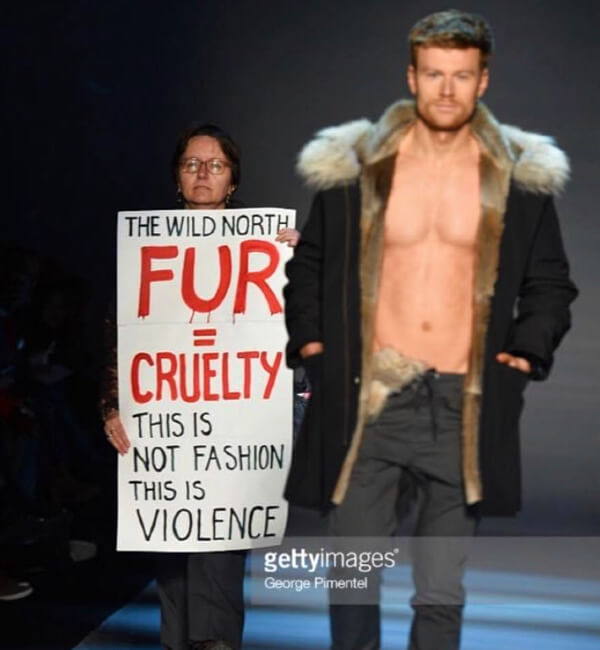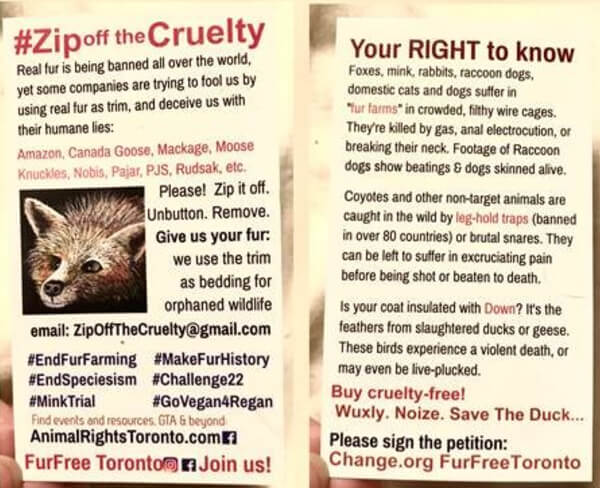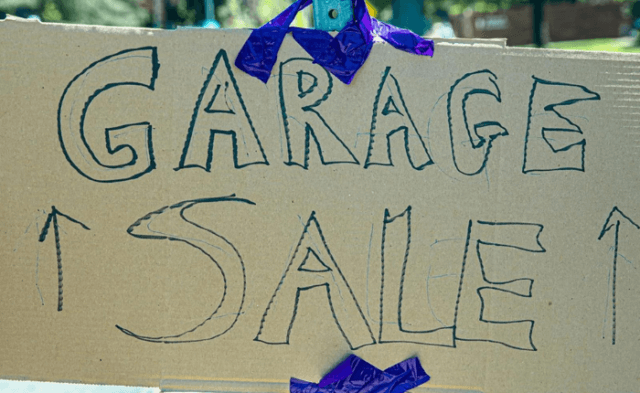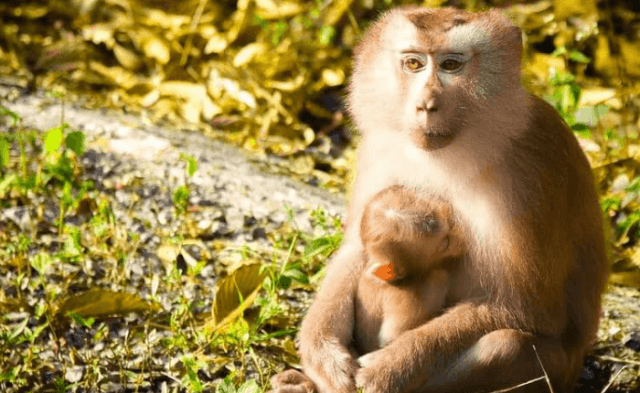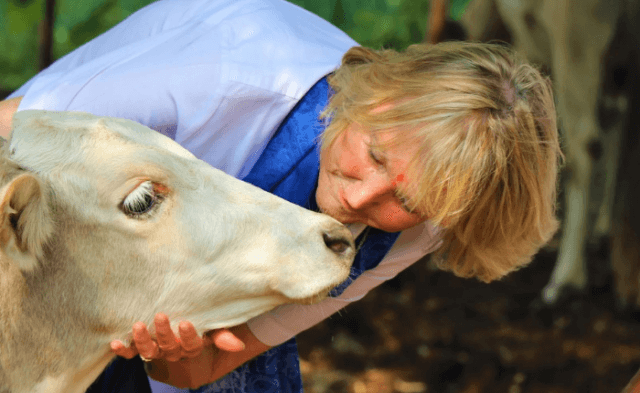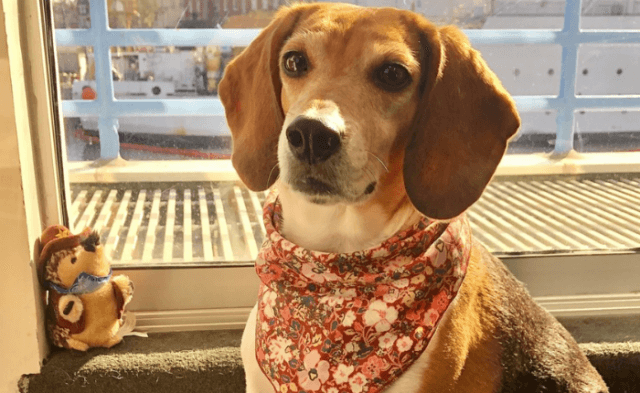Animal rights champion Jenny McQueen recently acquired 20 fur coats to boost PETA’s campaigns against the global skins trade. PETA Prime sat down with her to learn more about her decades of fierce advocacy for animals.
*****
How long have you been advocating for animals? And why is this cause important to you?
I’ve been a vegan and an animal rights activist since the mid-90s. This cause is so important, as I feel it’s a social justice issue, too. Campaigning for the rights of animals touches on many other issues, such as environmental degradation caused by the intensive confinement of animals, the deplorable working conditions faced by humans, the squandering of the Earth’s resources as humans feed billions of animals who will be slaughtered for food, the danger of zoonotic diseases, and the many awful violations of sentient beings who deserve to live free from human exploitation.
Animals are intensively confined, torn away from their homes in nature or bred in laboratories, and so undeserving of the awful lives and cruel deaths they experience. I feel compelled to help animals in whatever way I can. I volunteer with many different animal rights organizations and support them financially. I’ve also been arrested numerous times while campaigning for animals (good trouble?). My mantra? Be fiercely nonviolent.
You are one of PETA’s treasured activists. When did you get involved with the organization?
Many years ago! I volunteered with a local animal rights organization in the U.K., and PETA leaflets were a huge help to us for our outreach, covering all sorts of issues.
What are some of the most memorable demos, protests, or PETA campaigns that you’ve been involved with?
We demonstrated outside a Canada Goose shareholder meeting—wearing real fur (ugh!) and crawling across a cold sidewalk. That action was physically demanding but also very dramatic. One of us managed to ask a question inside the meeting, too. Just recently, we protested outside an ExxonMobil gas station against the company’s sponsorship of the cruel Iditarod dogsled race. We used caution tape to make a statement and poured fake blood from a gas can. All the PETA demos I’ve helped organize or attended have been well thought out, dramatic, and enlightening, and many have reached the mainstream news cycle.
Why are you so passionate about ending the fur trade?
The fur industry is literally making money from animal torture for a mere fashion item. Each winter, for the past decade now, I’ve been horrified as more coat manufactures think it’s OK to use real fur trim.
I started the #ZipOffTheCruelty campaign a few years ago to encourage fur wearers to #DonateTheFur. We’ve since donated many pieces of fur trim to wildlife rehabilitation centers (such as Procyon Wildlife in Ontario) as well as dropped off full fur coats at Buffalo Exchange stores in the U.S. for the Coats for Cubs program. I have recorded beautiful videos of orphaned wildlife being comforted by the fur and have used that footage to encourage more donations.
Getting fur off the streets is extremely satisfying! I think it gives activists a really useful tool, too. Letting the public know that there’s something good that happens with the fur creates an incentive for fur wearers to remove and donate it. Seeing so many fashion houses, companies, cities, and even countries going fur-free also gives us hope. Check social media or sign up for PETA’s Action Team and see if your city has a #FurFree campaign you can join!
You managed to secure more than 20 fur coats through your activism. Please tell us some of the stories behind all this. How did the previous owners of these coats react to being approached, and what made them finally agree to give you a coat to donate to animals in need? Did they also agree never to buy or wear fur again?
I didn’t expect to receive so many full fur coats, as our street activism mainly targets fur trim wearers. It’s actually unusual to see anyone wearing full fur coats these days, which is wonderful! I generally start with a question: “Is that real fur?” or “Can I give you a card?” What follows is a conversation about whom they’re wearing.
For fur trim, it’s getting more difficult to tell real fur from fake fur until you’re close to it (which is a testament to how far the faux-fur industry has come). I often have to inform people how to tell whether fur is real or faux. If it’s pointed (tapered) at the ends, it’s real. If it’s cut, it’s fake.
The reaction from people is varied. Some are horrified to learn they’re wearing real fur, many are embarrassed, and others try to ignore us and don’t seem to care. All interactions are different. Some will just take a card, some have a long conversation with us, and others will donate the fur on the spot! I’ve never had anyone become violent.
When word spread that we were accepting fur-trim donations, many people approached us to pass along the hidden shame in their closets. I’ve been contacted by elderly ladies who used to wear fur and now know better, as well as by younger folks who inherited fur and want nothing to do with it. I have a fur bin drop-off at my house where coats can be left, and I regularly receive fur trim in the mail now, too.
If you were to encounter someone who was considering buying an item made with real fur (such as a Canada Goose jacket), what would you say to persuade them to purchase an animal-free product instead?
I tell people there’s absolutely no reason to wear a product that’s responsible for so much death and suffering. Fur is also not a green product. Just research the chemical soup used to wash the blood and gore off it and the awful pollution from fur farms. I ask people, “How did he or she die?” If they’re wearing fox, rabbit, or raccoon-dog trim, I tell them about anal electrocution used on fur farms. If they’re wearing coyote, I talk about the leg-hold or snare traps used to capture them from their homes in nature.
The horror really is in the details. I learn the facts of this disgusting industry so that I can share the truth with others. Companies such as Canada Goose, Moose Knuckles, Mackage, Nobis, etc., are deceiving the public with their humane washing. So many companies are now selling cruelty-free coats, including Wuxly Movement, NOIZE, Save the Duck, Hoodlab, and many more. Check them out!
*****
Jenny McQueen is a longtime animal rights activist, originally from the U.K. and now residing in Toronto. She helps rescue animals, cofounded Animal Rights Toronto, is a member of Direct Action Everywhere (DxE), and volunteers with PETA, the Animal Save Movement, and other animal rights organizations. She is currently campaigning against a recently introduced “ag-gag” bill, in memory of the late animal activist Regan Russell.
Click here for more information on donating fur coats or trim to humans and other animals in need.

